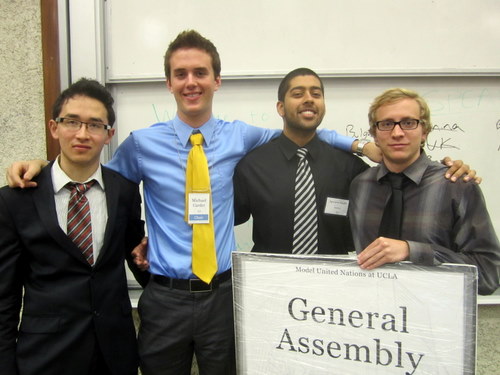
If you have done Model UN, chances are somebody, somewhere, has told you that Crisis committees are harder, and Crisis delegates are better than their GA counterparts. That’s why most conferences will have an Ad Hoc Crisis committee that they treat as their creme-da-la-creme of committees, meant only for the best delegates to compete against each other. Rarely will you see an advanced level committee expressly set out for better delegates in the form of a General Assembly/Specialized committee. VAMUN, my home conference, actually does do this now, but that’s beside the point
Since the general belief is that Crisis committees are harder and Crisis delegates are better, please indulge me and allow me to explain why I believe this to be untrue.
In a normal-sized committee, whether a Crisis or Specialized, delegates compete to be the best delegate. They try and show they are the most researched, have the most creative solutions, give the most commanding speeches, display the most diplomacy, and so on. While these are all great ways to showcase your skills as a delegate, GA delegates have to do this and much more.
In a committee often filled with 100+ people, GA delegates also have to fight for the ability to speak. Given the same amount of committee time as everyone else, GA committees are filled with up to 5x more people, all vying to speak. In a GA, you have to know how to play your cards to get called on—leaving it up to random chance that the Chair will see your placard when you’re 50 rows behind them just isn’t an effective solution. Instead, delegates have to strategically pick their seating location to be in the Chair’s eyesight.
Furthermore, you will get called on less in a GA than in a normal committee just by pure math. Chances are, many will complain that they aren’t called on enough during feedback. This will pressure the Dais to even out the distribution of speeches by position as much as possible, even if you have your hand up more than the next person. Subsequently, this means you will most likely get the exact number of speeches as your peers – a number which, by the way, will be very small. This means each speech you give must be substantial, relevant, commanding, powerful, and memorable. You have no leeway room for a bad or even mediocre speech.
That doesn’t even begin to touch upon the harsh MUN Bracket that begins with unmods. With literally hundreds of delegates in committee, unmods will first yield around eight groups with a reasonable number of people – enough to have a decent conversation and reach some sort of solution baseline. As a delegate, you’re trying to be a leader in your group – which can be challenging enough.
Let’s say you bust your chops, and you’re able to establish yourself as one of the top leaders in your group. But then, the Dais will inevitably implement a merger – which for those of you lucky enough to have never experienced this process is brutal. The Dais doesn’t want to read so many papers, so they ask people to merge and cut the number of groups down by half. You work hard to merge your paper with another group’s paper, but there is still no guarantee that you get to show off the work you did in front of the whole committee. The Dais will naturally institute a rule that only a small number of people from each merged paper can present. This means, even if you were a leader of your original group, the battle begins again with the other group leaders for who will ultimately get to present the paper and lead the merged group forward. From there, it is STILL a battle – even if you were speaking for your paper both times as the #1 leader, you can’t truly know if you secured an award. Because in a room with hundreds of people and just four staffers, the statistical likeliness that the Dais saw you at the exact moment you were popping off in your unmod discussion is low. No, they probably saw you the two minutes you decided to check your phone and take a well-deserved breather.
Diplomacy can be exhausting, especially when you also want to come home with some hardware.
GA’s are exhilarating and exhausting. While Crisis delegates get to conduct their strategizing and deceit on a piece of paper, GA delegates have to do it in a packed ballroom, which takes remarkably more guts. I am convinced GA delegates have to be more cutthroat, attentive, well-researched, charming, and commanding at all times. GA committees are, in my opinion, more intense and reflective of better delegates.
Disagree with me? Let me know, happy to hear why!


